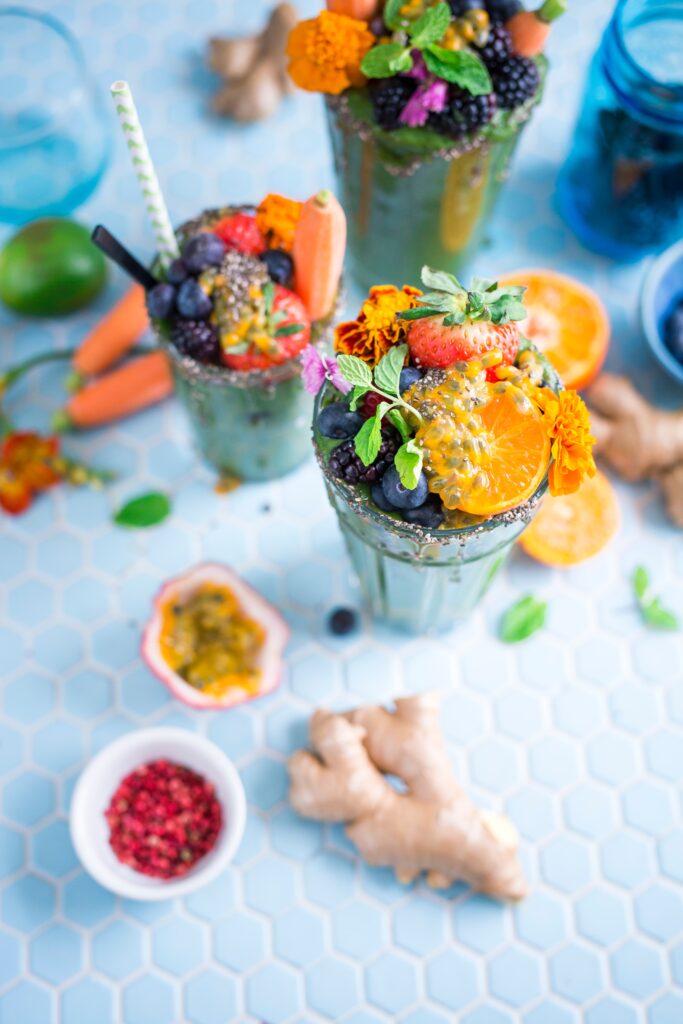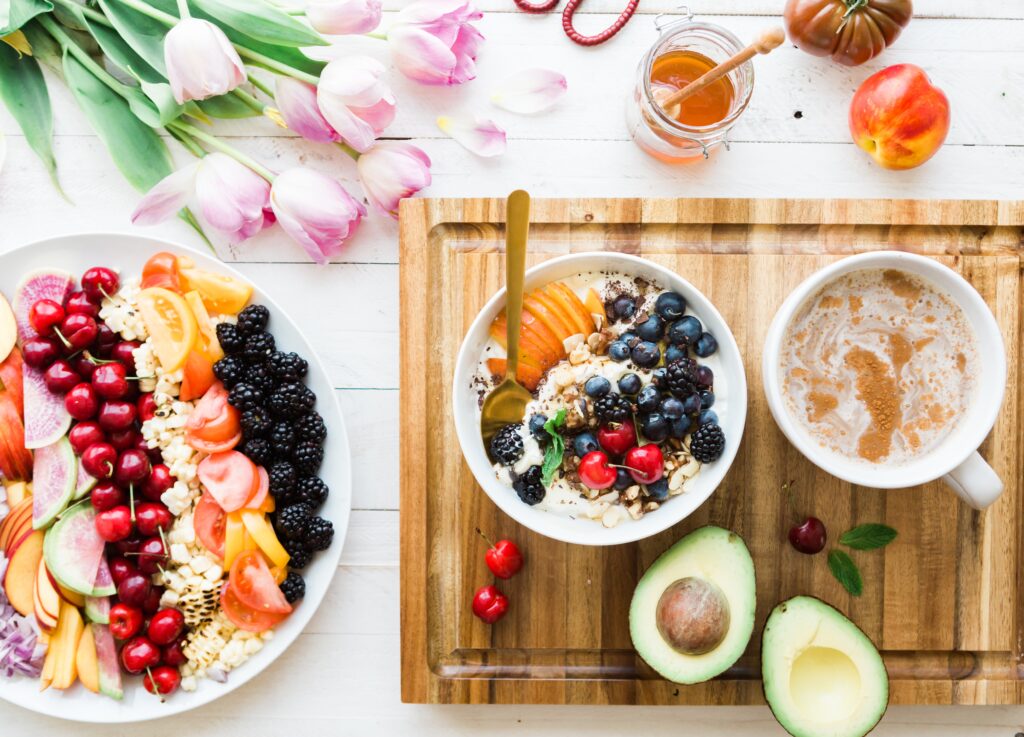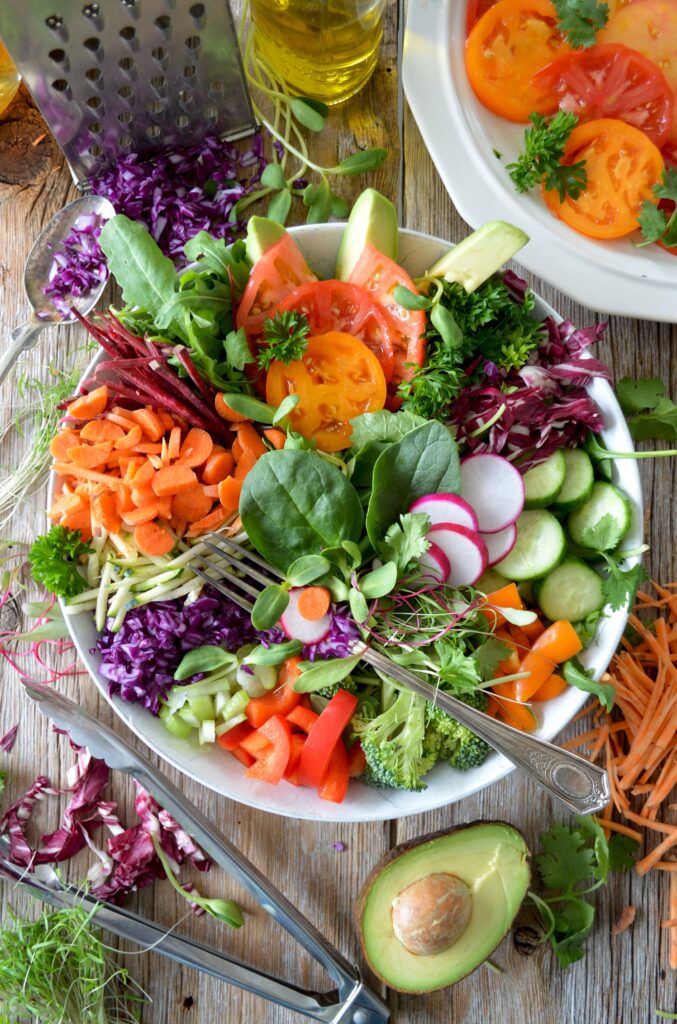With the environmental, health and ethical benefits of veganism beyond double those of meat-eaters, here’s why going vegan this World Vegan Month could be the best thing to do for both your body and the planet
When January rolls around, so too will the new resolutions to start eating a more plant-based diet. But why wait? November marks World Vegan month, so there’s no better time to explore the benefits of going meat, dairy and egg free — some of which include improved heart health and a decreased individual environmental footprint — something more and more people are slowly catching on to. Sign-ups for the Veganuary campaign, where people eat vegan for the month of January, hit record highs in 2022, with over 629,000 people signing up from 228 countries and territories. And that’s not including all the people who didn’t declare their intentions on the internet. In comparison, there were 582,000 participants in 2021, 400,000 in 2020 and 250,000 in 2019. Veganism, it seems, is most certainly in vogue.
While a plant-based diet is nothing new (the first book on veganism, The Hygeian Home Cook Book, was published in 1874 in New York by Robert Thatcher Trall, one of the founding members of the Amerian Vegetarian Society), statistics prove that today it’s more popular than ever. “Going vegan can be a great opportunity to eat better,” The Vegan Society’s Cat Thompson tells MOJEH. “You won’t be consuming saturated fat from meat, milk and eggs, and you’ll be avoiding processed meat, which the World Health Organisation has classified as a cause of cancer.” Instead, getting your nutrients from plant foods allows more room in your diet for health-promoting ingredients that are rich in fibre and low in saturated fat.

“Research has also linked vegan diets with lower body mass index which could help explain associations with other study findings including lower blood pressure, cholesterol and rates of heart disease and Type 2 diabetes,” adds Chantal Tomlinson, The Vegan Society’s in-house dietician. Eliminating meat and dairy intake can also have a significant positive impact on your carbon footprint as what we eat has a huge effect on climate change and the natural environment. A 2006 study from the UN Food and Agriculture Association found that the global farming industry creates more greenhouse gases than the whole transport sector combined, while in 2018 the WWF reported that livestock rearing and soy farming (grown mostly for animal feed) account for over two thirds of tropical deforestation. “The production of different foods can have very diverse environmental impacts,” says Sandro Serrano, a qualified nutritionist at Maison Sante Dubai. “To put things into perspective, producing protein from tofu requires 74 times less land and eight times less water than the same amount of beef, and the greenhouse gas emissions are 25 times lower.” Even a major independent study by Oxford University found that a global shift to a vegan diet would see climate emissions decrease by a substantial amount, which led its author to later conclude that avoiding meat and dairy is the single biggest way to reduce your impact on the planet.

While the pros of veganism are well documented, it’s likely those new to a more restricted way of eating will have some questions. After all, it seems the most common time people bring up protein intake is when a friend floats the idea of going vegan. But the question is a valid one — how can you make sure you are getting enough? “Protein is found in abundance in plant-based sources, but the amino acid profile in plants is often suboptimal compared to animal-based sources,” explains Serrano. “As such, incorporating a good quality protein supplement, such as one from pea sources, once a day should do the trick.” You could also try combining protein sources such as beans, pulses, seeds and nuts into your everyday meals — think a sprinkle over some pasta or adding a can of beans into your chilli. Then there’s the question of vitamin intake, as if you’re going vegan it’s important to make sure you get enough vitamin B12 — commonly found in meat, eggs and fish — as without it, you will feel exhausted and weak. “B12 is made by micro-organisms and not by plants,” says Tomlinson. “You’ll therefore need to get it from a supplement or fortified foods such as dairy alternatives, breakfast cereal and yeast extract. You can boost iron absorption by ensuring that meals contain a small source of vitamin C like pepper, broccoli, cabbage, pineapple or a small glass of orange juice.” Iron can also be obtained through plant-based foods including lentils, tofu, chickpeas, cashew nuts and raisins. If an overnight diet change feels overwhelming, start by eliminating certain foods gradually. How about giving up something you are least attached to while still allowing yourself a graze of a cheeseboard — apparently the food most new vegans find the hardest to give up? “Take it a step at a time and focus on a particular area of food or lifestyle,” advises Thompson. “For example, try swapping out dairy products first and finding out what else you enjoy and what is most convenient for you, before moving onto the next.” The society also recommends staying informed by knowing what nutrients you need and which foods you can find them in to ensure you maintain a healthy and balanced diet, while watching documentaries such as What the Health, Cowspiracy and Earthlings can also help you stay strong in your conviction.

“With climate change affecting our planet, its biodiversity and our way of life, as well as the pandemic making us worry more about our health, there’s no better time than now to dip a foot into veganism,” adds Serrano. And with the plant-based food market currently booming, it’s now easier than ever. Not only is an increase in vegans driving the demand for more animal-free products, but there’s also a huge uptake in restaurant chains providing vegan dishes and even exclusive vegan menus that taste just as good as their meatier counterparts. The crucial thing however, as all experts agree, is to not beat yourself up about it if you slip and break your stride — it’s a marathon, not a sprint, to plant-based perfection.
Read Next: What Makes A Product Vegan? What To Know (And Shop) This World Vegan Month
- Words by Naomi Chadderton
- Images courtesy of Unsplash





